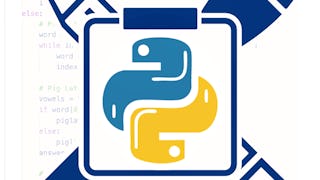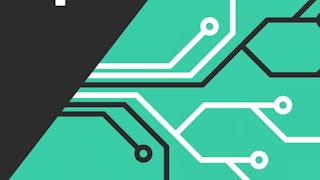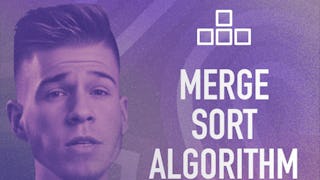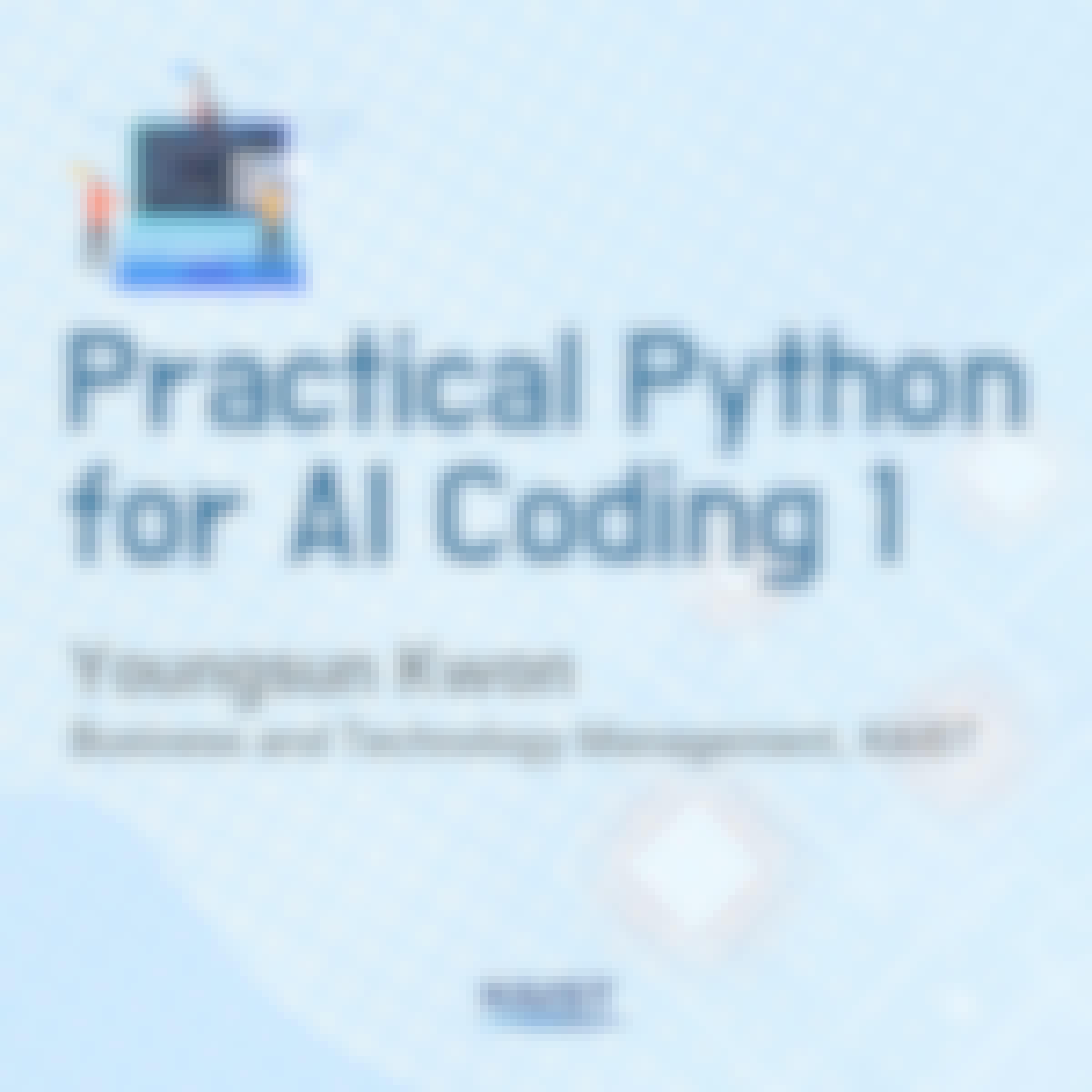Filter by
SubjectRequired
LanguageRequired
The language used throughout the course, in both instruction and assessments.
Learning ProductRequired
LevelRequired
DurationRequired
SkillsRequired
SubtitlesRequired
EducatorRequired
Results for "pseudocode"
 Status: Free Trial
Status: Free TrialMicrosoft
Skills you'll gain: Back-End Web Development, Program Development, Algorithms, Integrated Development Environments, Programming Principles, Pseudocode, Debugging, Computational Thinking, Engineering Software, C# (Programming Language), Version Control, Software Engineering, GitHub, Git (Version Control System), Data Structures, Microsoft Copilot

Duke University
Skills you'll gain: Program Development, Debugging, Python Programming, Development Environment, Computer Programming, Game Design, Interactive Design, Design and Product, Algorithms, Computer Science
 Status: NewStatus: Preview
Status: NewStatus: PreviewCoursera Instructor Network
Skills you'll gain: AI Personalization, Business Logic, Application Development, Computational Logic, C# (Programming Language), Computer Programming, Programming Principles, Data Structures
 Status: Free Trial
Status: Free TrialUniversity of Alberta
Skills you'll gain: Reinforcement Learning, Deep Learning, Feature Engineering, Machine Learning, Supervised Learning, Artificial Neural Networks, Pseudocode, Linear Algebra, Probability Distribution
 Status: Free Trial
Status: Free TrialSkills you'll gain: Data Structures, Algorithms, Computer Programming, Computational Thinking, Program Development, Technical Design, Debugging, Problem Solving, Performance Tuning
 Status: Free Trial
Status: Free TrialScrimba
Skills you'll gain: Software Design Patterns, Software Design, Computational Thinking, Algorithms, Program Development, Computer Programming, Software Development, Data Structures, Problem Solving, Computer Science, Machine Learning Methods
 Status: NewStatus: Preview
Status: NewStatus: PreviewNortheastern University
Skills you'll gain: Algorithms, Bayesian Statistics, Theoretical Computer Science, Pseudocode, Computational Thinking, Data Structures, Graph Theory, Network Analysis, Probability, Probability & Statistics
 Status: Preview
Status: PreviewPeking University
Skills you'll gain: Algorithms, Pseudocode, Theoretical Computer Science, Mathematical Modeling, Computational Thinking, Applied Mathematics, Data Structures, Mathematical Theory & Analysis, Graph Theory, Design Strategies, Bioinformatics
 Status: Free Trial
Status: Free TrialRice University
Skills you'll gain: Computational Thinking, Programming Principles, Algorithms, Data Structures, Theoretical Computer Science, Computer Programming, Python Programming, Computer Science, Game Theory, Mathematical Modeling, Software Testing
 Status: Free Trial
Status: Free TrialUniversity of London
Skills you'll gain: Debugging, Development Environment, Javascript, Program Development, Computer Graphics, Computer Programming, User Interface (UI), Interactive Design, Human Computer Interaction, Data Management, Animations
 Status: Free Trial
Status: Free TrialUniversity of California San Diego
Skills you'll gain: Computational Thinking, Education Software and Technology, Programming Principles, Debugging, Computer Programming, Algorithms, Development Environment, Computer Science, Brainstorming
 Status: Preview
Status: PreviewKorea Advanced Institute of Science and Technology(KAIST)
Skills you'll gain: NumPy, Python Programming, Artificial Intelligence, Programming Principles, Tensorflow, Data Structures, Development Environment, Keras (Neural Network Library), Computer Programming Tools, Object Oriented Programming (OOP), Data Manipulation
Searches related to pseudocode
In summary, here are 10 of our most popular pseudocode courses
- Foundations of Coding Back-End: Microsoft
- Practical Python: Start Your Programming Journey : Duke University
- Learn to Code: Fun with C#: Coursera Instructor Network
- Prediction and Control with Function Approximation: University of Alberta
- Interview Questions and Real-World Applications: Packt
- The Merge Sort Algorithm: Scrimba
- Program Structure and Algorithms Part 2: Northeastern University
- 算法设计与分析 Design and Analysis of Algorithms: Peking University
- Principles of Computing (Part 2): Rice University
- Introduction to Computer Programming : University of London










